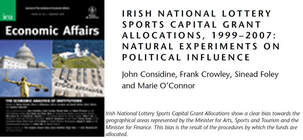
Colin Coyle's piece in the Sunday Times explained how there is going to be a public consultation on the allocation of National Lottery funds in Ireland. A recent paper in Public Choice examined the situation in Israel. The title of the paper by Momi Dahan and Itamar Yakir captures much of the content - "Revealed political favoritism: evidence from the allocation of state lottery grants in Israel". The paper examines a shift from a discretionary allocation system to a more rule-based allocation system. The authors found that favouritism towards the Jewish municipalities decreased with the move to the rules-based system. With a bit of luck, the folks heading up the public consultation (Indecon) will read Dahan and Yakir paper.
It would be a mistake to presume that any rule will solve all the problems. It will depend on the quality of the rule. Six years ago, Justin Doran and myself examined the problems with an informal rule (here, also published in Public Choice). Dahan and Yakir's paper gives a more promising message.
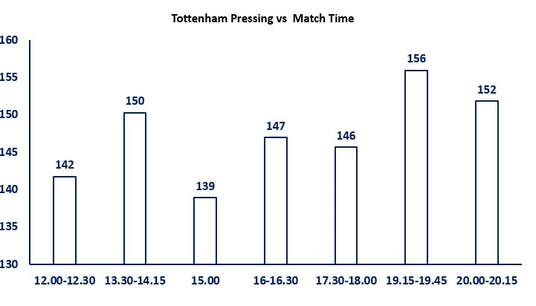
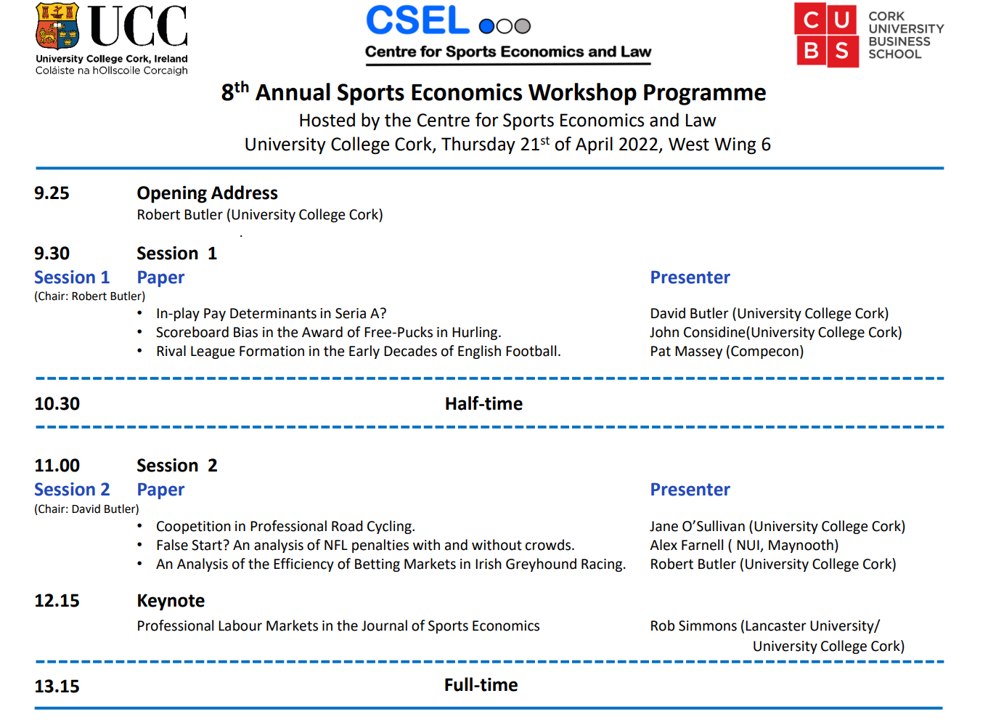
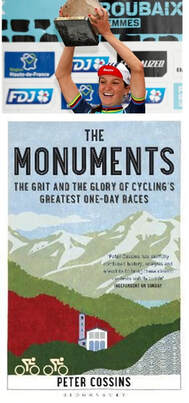
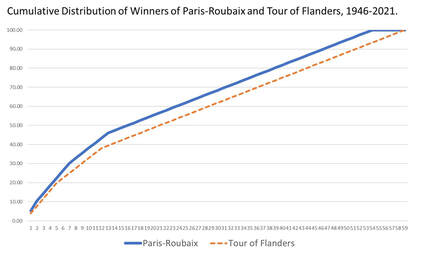
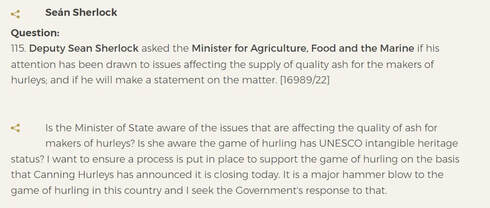
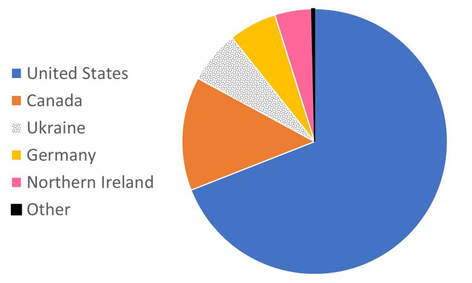
 RSS Feed
RSS Feed